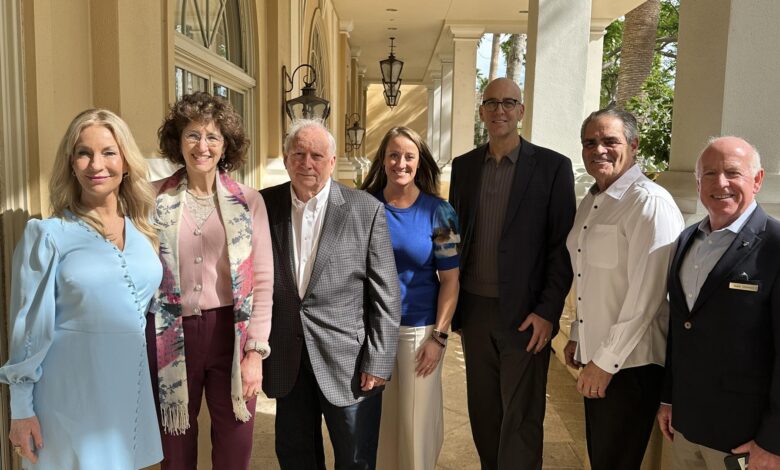
Extended Stay: A Rising Trend in Hospitality—Insights from Industry Leaders at BITAC Owners Fall Event
By Gavin Fraser | December 2, 2024
At the recent BITAC Owners Fall event, a panel discussed the rapidly growing extended stay market, covering its evolution, opportunities, and challenges. Moderated by Kimberly Rowell, EVP and Managing Partner at Five Star Hospitality and Development, the panel featured a group of industry veterans who shared insights on the future of extended stay properties.
Panelists:
- Douglas Artusio, CHA, CHME, Founder & Chairman, Dellisart Hospitality
- Cindy Estis Green, CEO & Co-Founder, Kalibri Labs
- Paul Novak, Partner, Whitman Peterson
- Ron Stewart, SVP Lodging Development, Marriott International
- Mark Sherwin, General Manager, The Ritz-Carlton, Sarasota
The Rise of Extended Stay
Extended stay hotels, long associated with guests staying seven nights or more, have expanded significantly in recent years. With new brands catering to both economy and upscale segments, this market now accounts for about 10% of hotel rooms in the U.S. The appeal lies in providing cost-effective accommodations for travelers while offering strong returns for developers.
Douglas, who began building extended stay properties in 2001, noted that COVID-19 was a pivotal moment for the sector. During the pandemic, extended stay hotels—often catering to business travelers—became the preferred option for a broader range of guests. Extended stay properties saw higher occupancy rates compared to traditional hotels, with some reaching 92% during the crisis.
Douglas also highlighted the financial benefits, pointing out that extended stay properties deliver higher cash-on-cash returns compared to full-service hotels, thanks to lower operating costs and efficient management.
Data-Driven Insights: The Opportunity for Developers
Cindy, CEO of Kalibri Labs, provided data showing that U.S. extended stay room revenue is expected to exceed $20 billion in 2023. Kalibri Labs’ research suggests strong demand, with new supply being absorbed without significant dips in performance. This indicates a healthy market for further growth.
Cindy also noted the increasing diversity of the extended stay sector. While traditional properties targeted long stays of 30+ nights, newer offerings cater to shorter stays between 7 and 29 nights, opening up opportunities for developers to target a wider audience. The demand for workforce housing and mid- to upscale extended stay options has fueled this trend.
However, Cindy warned that developers must understand local market dynamics, such as the presence of corporate relocations, manufacturing hubs, or medical facilities, to ensure successful projects.
Overcoming Development Challenges
A key discussion point was the regulatory hurdles facing extended stay developments. Paul, Partner at Whitman Peterson, spoke about the challenges posed by municipalities wary of extended stay properties, especially those concerned with clientele attracted to budget hotels. These concerns can result in strict zoning regulations or outright bans.
Paul noted a growing recognition that high-quality extended stay properties can address workforce housing needs. He shared a case where Whitman Peterson successfully convinced local authorities that a new extended stay hotel would help alleviate housing shortages, leading to more favorable regulatory conditions. Paul stressed the importance of early engagement with zoning and planning departments to navigate these challenges.
The Role of Full-Service Hospitality in Extended Stay
Mark, General Manager of The Ritz-Carlton Sarasota, shared his experience managing both luxury and extended stay properties. He explained that while extended stay hotels traditionally focused on essentials like kitchens and long-term accommodations, today’s guests expect more personalized service.
Mark emphasized that many extended stay guests—whether relocating for work or on long-term assignments—expect a level of engagement and comfort that extends beyond basic amenities. Personalization, including knowing guests’ preferences and offering tailored services, plays a significant role in guest satisfaction.
Future Outlook: Opportunities and Challenges
The extended stay sector continues to offer significant growth potential. Its ability to generate strong returns, combined with demand for workforce housing, positions it as a key player in the hospitality industry. However, developers must navigate challenges, including zoning regulations and evolving guest expectations.
The demand for extended stay properties remains robust, and developers who can understand local conditions, leverage data-driven insights, and offer superior service are well-positioned for success.
Douglas reflected on the resilience of extended stay properties during uncertain times. He noted that while traditional hotels struggled during the COVID-19 pandemic, extended stay properties maintained high occupancy, even outperforming full-service hotels. Douglas attributed the success of the model to high demand and limited supply, resulting in consistently higher cash-on-cash returns.
Navigating Development Challenges and Municipal Resistance
While the potential for growth is clear, Paul highlighted the challenges developers face with local governments resistant to extended stay properties. Many municipalities still associate extended stay hotels with low-cost motels, leading to zoning challenges.
Paul shared a case study from Auburn Hills, Michigan, where the city initially required a 5,000-square-foot meeting space for an economy extended stay project, a demand that was impractical for the model. He emphasized the importance of educating municipalities about the evolving nature of the extended stay market and its role in providing essential housing.
Aligning Brand Strategy with Market Demand
Ron, SVP of Lodging Development at Marriott International, explained how Marriott evaluates new extended stay locations. Key considerations include proximity to major employers, military bases, and universities. Ron also noted that, while upper-upscale brands are growing, opportunities still exist in the economy and mid-price segments, where operational efficiency is maximized.
Mark discussed how personalized service is a critical component of success in the extended stay market. Guests, especially those staying for longer periods, expect to form relationships with staff. He also emphasized the importance of leaner staffing models in economy and mid-price properties, which balance high service standards with cost efficiency.
The Future of Extended Stay: Adaptive Reuse and Market Trends
One exciting opportunity in extended stay is adaptive reuse—converting office buildings or older properties into extended stay accommodations. As more companies adopt hybrid work models, demand for flexible living arrangements has increased. Douglas and Ron both agreed that the right building, location, and team can make adaptive reuse a successful strategy.
The panelists concluded that the future of extended stay properties is bright. With strong market demand, efficient operations, and evolving guest preferences, extended stay properties will continue to grow in importance. Success in this sector requires understanding market trends, maintaining operational discipline, and adapting to local needs. As the market evolves, extended stay is poised to remain a key part of the hospitality industry.





Get involved!
Comments